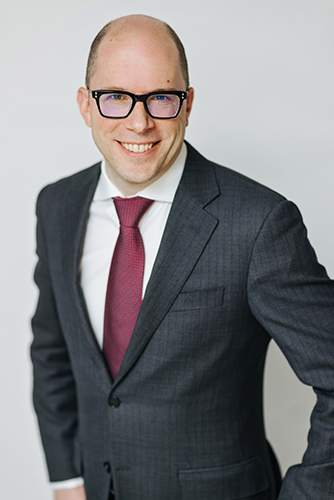Fraud is Fraud: Forensic Accounting in the Digital Age
If the 1973 con artist classic The Sting was remade in 2024, the roles of Paul Newman and Robert Redford would be replaced by chatbots.
That is how sophisticated fraud has become. From AI generated voice clones to phony crowdfunding sites, con artists and fraudsters are always among the early adopters of new technology. And the growing popularity of cryptocurrencies has made the sector one of the most attractive to scammers.
More than $300 million was stolen from Canadians in investment scams in 2023, according to the Canadian Anti-Fraud Centre (CAFC). Half of those losses were linked to cryptocurrency scams.
That’s where forensic accountants, like Daniel Tourangeau, FCPA, FCA, MFAcc, CFF, CFE, come in. As a Case Lead and Senior Forensic Accountant in the Enforcement Branch of the Ontario Securities Commission, Daniel was instrumental in the QuadrigaCX case, a cryptocurrency exchange that was exposed for owing its clients over $200 million dollars, and ultimately collapsed in 2019.
The case was featured in the Netflix documentary Trust No One: The Hunt for the Crypto King.
For Daniel, becoming a forensic accountant was the obvious choice.
“I realized at a very early age that I tended to see what others didn't. And when I became a CPA, I realized that this intuition was really an investigative mindset. There’s a reason why some people question what they see and zero in on things that don't seem quite right,” said Daniel.

“I see it as a calling and I would not want to do anything else but this.”
Daniel has been working in the field since the mid-2000s, but the information – and misinformation – around crypto has opened a whole new can of worms.
“When crypto assets first came on the market, they were designed to be outside the regulatory framework. That was the whole idea around why they were originally created,” said Daniel.
As a key player in uncovering one of the first, and largest, cryptocurrency frauds to date, he has been on the forefront of the evolution of fraud in the digital age.
“Crypto has been a huge innovation, so we have learned, and continue to learn, to be agile and proactive at identifying risks,” said Daniel.
“Technology can give the impression of difficulty – that the fraud is so complicated you can't find it. But it’s the same old techniques as always. It’s a flow of funds, it can be a Ponzi scheme - just disguised and covered up by new technologies.”
“At the end of the day, whether a fraudster is using crypto or other means to achieve their deception... fraud is fraud.”
Doing deep-dive investigations, and exposing Ponzi schemes and digital fraud is all in a day’s work. But above all, Daniel sees his role as protecting investors, the integrity of capital markets, and the public.
“By thoroughly investigating potential wrongdoing and exposing wrongful conduct when it is found, forensic accountants are in a very unique position to contribute to protecting the public,” Daniel says.
Cryptocurrency isn’t the only digital transformation that has attracted con artists and fraudsters. Tourangeau suggests that artificial intelligence could be used to manipulate the public in any number of ways.
But he poses an interesting twist: if this technology can be used by fraudsters to achieve what they want, that same technology can also be used by regulators and law enforcement to uncover wrongdoing. He believes that by harnessing the power of AI, forensic accountants – and CPAs in general – can make an even greater impact.
“What I have learned is that there is truly no limit to what we can do as forensic accountants.
Forensic accounting involves a great deal of creativity, according to Daniel. In addition to the skills, knowledge, and financial acumen, the ways you find and then simply and clearly present evidence is a special skill all on its own. “I always see forensic accounting as both an art and a science,” Daniel says.
To any aspiring forensic accountants out there, Daniel has some sage advice: “You have to have the desire to constantly learn, and you cannot let new technology phase you”.
But even more important than continuous learning and adapting to new technology, Daniel believes that the ability to understand why people do what they do is the most important element to being a forensic accountant.
“I can think like fraudsters, but I choose to use my skills to expose them.”


